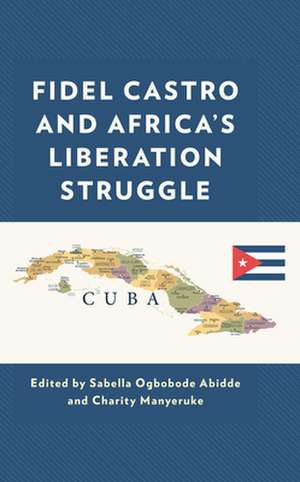FIDEL CASTRO AMP AFRICAS LIBERATCB
en Limba Engleză Hardback – 30 sep 2020
Preț: 685.39 lei
Preț vechi: 890.12 lei
-23% Nou
Puncte Express: 1028
Preț estimativ în valută:
131.17€ • 136.43$ • 108.28£
131.17€ • 136.43$ • 108.28£
Carte tipărită la comandă
Livrare economică 15-29 aprilie
Preluare comenzi: 021 569.72.76
Specificații
ISBN-13: 9781793611451
ISBN-10: 1793611459
Pagini: 240
Dimensiuni: 152 x 229 x 20 mm
Greutate: 0.51 kg
Editura: Rowman & Littlefield
ISBN-10: 1793611459
Pagini: 240
Dimensiuni: 152 x 229 x 20 mm
Greutate: 0.51 kg
Editura: Rowman & Littlefield
Notă biografică
Descriere
This book argues that Fidel Castro's political support of Africa was not motivated by economic, selfish, or geopolitical considerations, but instead by altruism, certainty in his worldview, and the historical connection between the peoples of Cuba and Africa.
